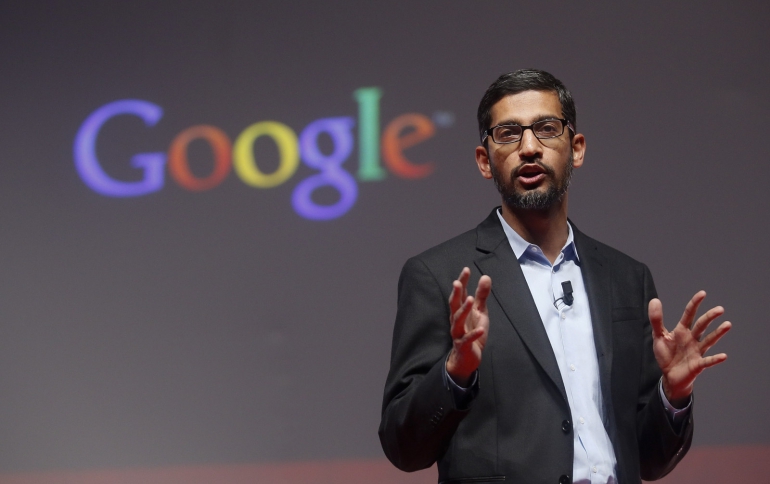
Google's Pichai Denies Plans for Chinese Search Engine Launch
On Tuesday, Google CEO Sundar Pichai endured nearly three and a half hours of questioning in front of the House Judiciary Committee about the company he leads, including its market position, complaints of political bias, and concerns over it launching a censored search product in China.
Pichai admitted that over 100 employees had worked on the China search engine project (Dragonfly) over the course of a number of months, but denied that Google had any plans to expand a search product to China.
On several occasions, Pichai noted part of Google’s mission is to “explore possibilities to give users access to information,” but he tried to ensure lawmakers that the company would engage with U.S. policymakers before taking any steps to move into China.
He told the committee he would be “fully transparent” with policymakers if the company brings search products to China.
“Right now, there are no plans to launch search in China,” Pichai testified. “Getting access to information is an important human right, so we always are compelled across the world to try hard to provide that information.”
That, of course, leaves the option open to launch one down the road.
Lawmakers and Google employees have raised concerns that Google would comply with China’s internet censorship and surveillance policies if it re-enters the Chinese search engine market. Google’s main search platform has been blocked in China since 2010.
Other issues that came up during the hearing were allegations that Google search results are biased against conservative viewpoints and news sources; concerns over how Android devices collect data; concerns over Google’s market dominance; forced arbitration of employee claims; and how content is filtered on Google’s platform.
In response to the allegations, Pichai said: “I lead this company without political bias and work to ensure that our products continue to operate that way.” He re-iterated that Google’s search results can’t be manipulated by one person and that it’s designed to be robust and responsive to user feedback.
Pichai also stated that Google was working to make it easier for consumers to understand its privacy policies. That includes simplifying its privacy dashboards and sending reminders to users to check up on their privacy settings. Still, he admitted that the company still as a lot of work to do in that area.
A number of references were made also during the hearing to Google’s market dominance in search, including wielding of a number claiming that 90% of searchers are made on Google’s platform.
Pichai said that the stat doesn’t adequately reflect how people search. He noted, for example, that studies of searches for products to shop for don’t include Amazon, which he said was many consumers’ go-to first stop for shopping.




















